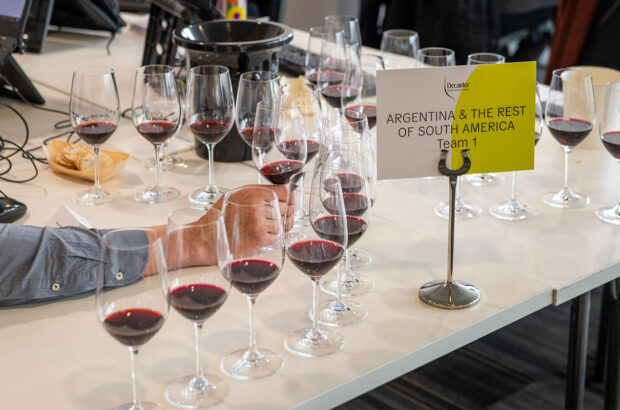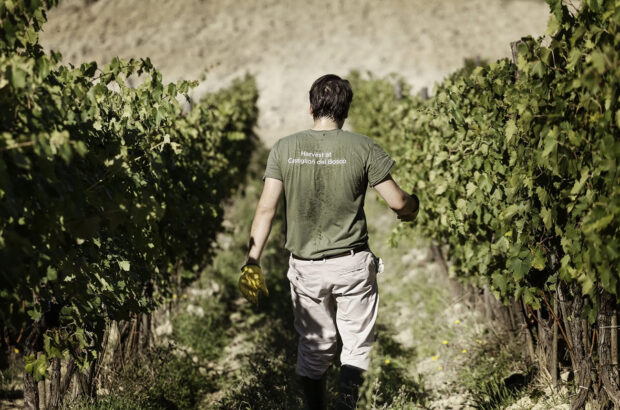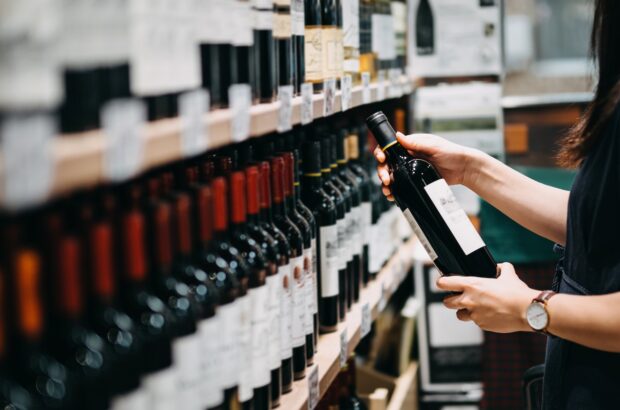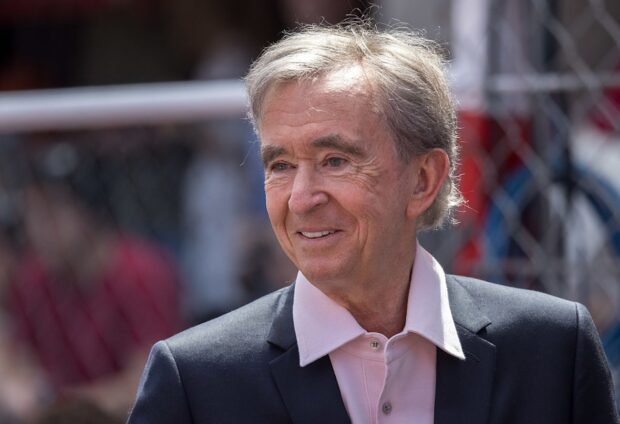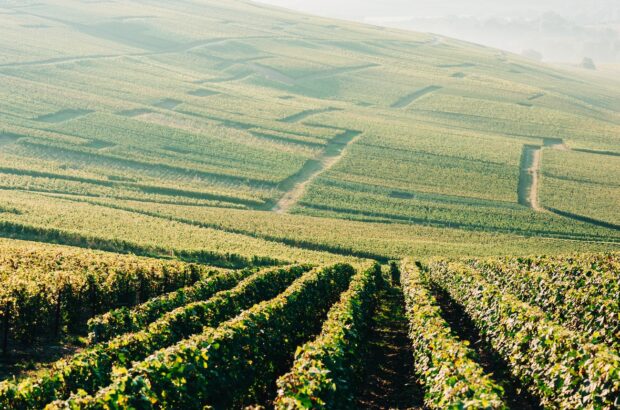As the father of American winemaking, Robert Mondavi has built up an empire of wineries around the world. ADAM LECHMERE meets the embodiment of the American dream and investigates Mondavi wine.
Robert Mondavi uses the words ‘learn’, ‘family’ and ‘excel’ a lot. You could say that the concepts form the lodestone of his life. Looking back through my interview with him in the Mondavi pavilion at Vinexpo earlier this year, they crop up again and again. The 88-year-old father of American winemaking is still learning and still seeking excellence in his Mondavi wine.
https://www.decanter.com/wine-news/obituary-robert-mondavi-82201/
A typical exchange went something like this: asked about his position on the board of the company, and how his sons Michael (president and CEO) and Tim (winery and vineyard director across the global enterprise) fit in, Mondavi said: ‘I was willing to try many things and let them go wild, with the hope of learning something’.
It should be noted, of course, that the formidable patriarch is not talking about callow youths given their first start, but men in their 50s with grown-up children, running multi-million dollar, global operations.
‘In any business, grooming successors, especially if they are your children, is an essential and tricky task. And, frankly, I didn’t do a very good job of it, at least not at the outset,’ he writes in his 1998 autobiography, Harvests of Joy. Tim and Michael could not get on. There was terrible conflict but they learnt from it, with the help of a therapist, and the two were given positions that reflected their skills and characters. The company became stronger, and the family has remained intact.The helmsman is still there. He formally handed over the controls to Michael and Tim in 1994, but still sits on quarterly board meetings and, as chairman emeritus, ‘has an important role in guiding family and company decisions,’ says one of his publicists.
If I knew anything about the American dream I’d say Robert Mondavi embodies it (he certainly believes in it). He manages to be both blue-eyed innocent and tough as a 40-year-old To Kalon vine, capable of forging alliances with the most powerful winemaking families of the world, and going dewy-eyed over a tiny dog that he’s just taken in.
Michael Broadbent has known him since the very early days. ‘He’s very modest and self-effacing,’ he says. ‘And he’s always experimenting.’
This experimentation resulted in the development of cold fermentation (Mondavi was the first to use it in America) and a plethora of different remontage methods, from pumping over to punching down and cap submerging.
Trials and tribulations
Mondavi’s experimentation has also worked against him. Broadbent remembers a tasting in the mid-1960s of a flight of Charles Krug Cabernets against the early Robert Mondavi Winery Cabernets. This was after Robert had split with his brother Peter – still running Krug – and started his new winery, To Kalon.’What I noticed was the inconsistency in style of Bob’s Cabernets compared with the Krug,’ Broadbent says. ‘He was always trying new things, you see.’
https://www.decanter.com/wine/grape-varieties/cabernet-sauvignon/
Robert Mondavi Winery today is a $360-million operation. Fine wines are marketed under a plethora of labels – Robert Mondavi Coastal, La Famiglia di Robert Mondavi, Woodbridge, Arrowood, Io. The company makes wines in Languedoc in France (Vichon Mediterranean), and with Château Mouton-Rothschild, and with Frescobaldi in Tuscany. There are partnerships in Chile with the Chadwick family and Australia with the Oatleys of Rosemount. There is the Golden Vine Winery, a $12-million investment in Disney’s California Adventure theme park, all part of the plan to bring fine food and wine to the American public.Through all this Mondavi has heroically stuck to the ideal of the family-run business. No matter that soon after he went in with the Oatley family, Rosemount was taken over by Australian giant Southcorp, one of the biggest wine companies in the world. Of corporations Mondavi has written: ‘They buy a company, bring their people in, and then work like dogs to boost profits. Short term.’ Surely it is the sort of company he’d run from?
‘I feel fine about it! They [Rosemount] are still family operated. If we do anything with anyone it is on the condition that we are family run, and we only do business with people who feel the same way.’
When he first dealt with the Rothschilds, he sat at the end of the Baronne’s bed. ‘I was there for two hours, with his dogs all around. He knew I was telling the truth and I knew he was telling the truth.’
Mondavi trusts people. Weeks before I wrote this piece, his PR department rang to ask if we could do a special printing of the article, paid for by them, as a keepsake. Faith like that can take some hard knocks. From the famous fistfight with his brother Peter in 1962 (the story involves a mink coat, the Kennedy White House, and accusations of swindling) that resulted in his sacking from the family business, there have been setbacks that have hurt – most notably in the Languedoc.For years Mondavi has cherished a dream of growing his own grapes in the corner of southern France where the company makes Vichon Mediterranean. The dream was dashed by anti-American shenanigans on the communist town council of Aniane, which controls the patch of common land he wanted to rent and plant to vine.
David Pearson, Mondavi’s manager in the Languedoc, told me how his boss reacted when they decided to pull out, dismayed by the ferocity of the opposition to the scheme. ‘The family has no desire, or need, to go where they are not wanted. He was upset – we were all upset. I for one was surprised by the intensity of the feeling against us.’Mondavi says: ‘They’re losing something. We had the opportunity to help improve this region.’ But in the same breath he’s moving on. ‘We wanted to be in France but now we can find other places that are interesting – we could invest in Australia, or Italy, or Chile. We’re thinking of buying more property in Italy – we’ve been all the way up from Sicily to Alto Aldige.’
He won’t be pressed, but Marche, from where his parents, the stern and silent Cesare and the adored Rosa, emigrated at the beginning of the last century, seems to be where he is thinking of buying land. Is he returning to his roots?
‘Not only that. They made a style of wine that is easy to drink – not as serious as a Cabernet maybe, but drinkable, with a lot of character. I liked that leanness, the real drinkability of it. It’s a fun region to work in.’Mondavi is being drawn to Europe in more ways than one. He doesn’t seem to be that interested in his roots, but he obviously loves the old country. It’s always the wine that draws him. Mondavi introduced what he calls ‘the international style’ of winemaking to America – wine that is drinkable when young, harmonises with food, and that will age. He came across it in Italy and he is still chasing it in California.
‘Right now I have gone back to my roots and I have to do the simple thing of making good, clean wine that is gentle and will harmonise with food.’
The holy grail
The quest for the perfect wine is a noble, almost Quixotic, aspiration. It must be like a violinist trying to find the purest expression of Bach, or a chef looking for the utmost fusion of taste and texture. The great To Kalon tanks – 56 five-thousand-gallon oak fermenters, at a cost of $28 million – were built in search of this ideal.This is why he’s so hurt by Robert Parker. Though he denies it, the heavyweight critic’s assessment of his style – ‘some notion of Euro-elegance’ – is eating him like phylloxera. During our two meetings over the past eight months he has returned to it again and again.I imagine the subject is banned around the Mondavi breakfast table. At one stage he mentions a difference of opinion with ‘a very knowledgeable wine writer’. His wife Margrit (obviously thinking, ‘Parker again’) tries to steer him away from the subject with ‘Bob, don’t you think it’s exciting to see what the wine in the big To Kalon tanks will be like?’But he’s off. ‘I’m not offended. I think he was unfair. We didn’t conform to his standard. Our dream is to get a wine that will harmonise with food, that will age for 50 to 100 years but will have harmony and balance. He likes something richer, fuller, with more body.’Hurt he may be, but he’s optimistic. ‘When we have honest differences of opinion, you sometimes learn from them. I always think I could learn from someone else when they look at something from a different point of view.’
I should be ashamed to even think of writing a sentence as hackneyed as ‘Robert Mondavi embodies the American dream’. But I can’t help it. He is the son of sharecroppers, the father of American winemaking, the patriarch of Napa. He is successful, optimistic, confident in his pursuit of excellence, happy to admit mistakes, yet convinced there is no setback one can’t learn from. Seeing him among the dandified aristocrats in Bordeaux, you suddenly see what Henry James meant when he talked of the experienced Old World and the inexperienced New. As I was leaving I asked if the American dream was real. ‘Sure it’s real,’ he replied with a grin. Then for some reason I said: ‘Americans are very innocent, aren’t they?’
Robert Mondavi chuckled hoarsely. ‘And naïve,’ he said, and stumped off through the Vinexpo crowds to cut a couple more deals before lunch.
Adam Lechmere is the editor of decanter.com
Written by ADAM LECHMERE



